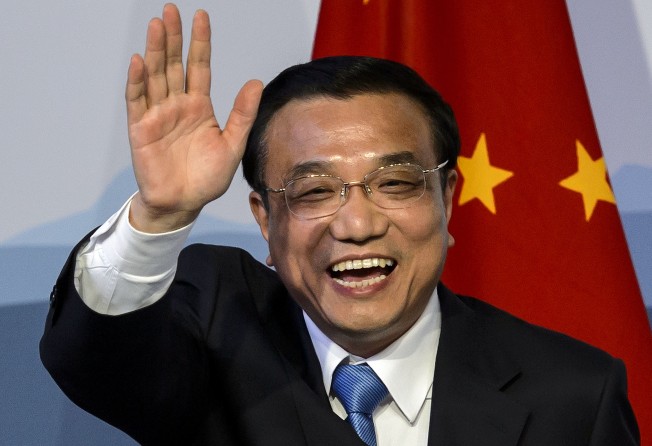China's leaders to follow Putin in writing for foreign media

An article published in Global Times, a newspaper affiliated with the official People's Daily, on Monday encouraged more officials to publish articles in the foreign press with an eye to influencing oversea audiences and eliminating the “distortions” usually found in the foreign media.
The approach is inspired by Russian President Vladimir Putin’s influential article on the conflict in Syria, which was published in the New York Times last week.
The opinion piece encouraged officials to “seize public opinion” by writing articles for publication. By doing so, leaders can convey a “comprehensive and precise” message to oversea readers, it said.
This was necessary because some elements of the western media distort remarks made by Chinese officials in interviews, the article said.
“Shall we choose to give up this front? [If so, we] are leaving it for those malicious China attackers to exploit.”
The article echoes Putin’s hugely-influential article in which he strongly asserted the Russian government’s opposition to any outside military intervention in Syria.
“[Putin’s] article is aggressive political propaganda. It took advantage of western nations’ press freedom to pass on a clear political message to its audience,” the article said, praising it as a “fairly good approach”.
In fact, China’s leaders have increasingly turned to the foreign press to convey their opinions in recent years.
Li Keqiang is among a number of senior officials whose bylines have appeared. In an article in the Financial Times last week, ahead of the World Economic Forum, Li reassured European Union leaders that China, and other countries in Asia, would prevent any repetition of the financial turmoil that took place during the Asian financial crisis of the late 1990s.
Li’s byline has appeared in newspapers in various nations around the world at least ten times since 2011, when he serving as vice-premier.
The timing of these articles has appeared to co-ordinate with Li’s diplomatic trips abroad. In May, for example, one influential English-language Indian newspaper and one in Hindi ran an article by Li named “A handshake across the Himalayas”, which coincided with his visit to the nation.
That trip was immediately followed by a visit to Switzerland, where Li’s byline appeared under an article entitled “Why Switzerland?” published in Neue Zurcher Zeitung. And, when Li was subsequently in Germany, he contributed a piece to the influential weekly Die Zeit.
But Li is trumped by his former colleague Wang Qishan in terms of the sheer number of articles published in the foreign press. According to the China News Weekly, Wang had articles published in the The Wall Street Journal and New York Times five times in 2009 alone.
The list of published officials extends from former premier Wen Jiabao to vice-premier Wang Yang. This trend marks a distinct departure from political figures in the past, who invariably chose the Communist Party’s official media to deliver their messages.
This shows Chinese leaders are placing increasing emphasis on proactively laying out their opinions to the public abroad, Guo Huimin, deputy principal of the University of International Relations in Beijing, told the China News Weekly.
Lu Shiwei, a senior international relations researcher at Tsinghua University, also in Beijing, has said these articles are usually drafted by a specialist team but also involving government divisions relevant to the topic.
When a draft is complete it is sent to the Foreign Ministry for translation before being passed to the foreign media for publication, Lu told the Nanfang Daily.